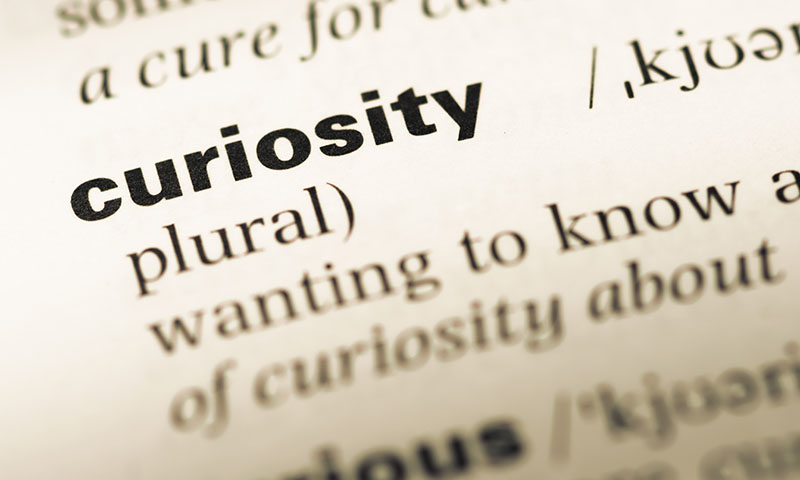
“What qualities do you see most often in those who succeed?” Adam Bryant asked over 700 CEOs he interviewed for his book Corner Office.
The number one answer on their lists: Curiosity.
As children, we are naturally curious, born with the impulse to seek new information and experiences. As we age and gain more experience, we become less reliant on curiosity for answers and more reliant on knowledge. Curiosity gives way to comfort and certainty.
Curiosity throughout adulthood requires approaching experiences with the open-mindedness and naivete of a child. Buddhists call this Beginner’s Mind. Shunrya Suzuki popularized this Zen principle. He teaches that the correct approach to Zen requires a lack of preconceptions because “in the beginner’s mind, there are many possibilities, in the expert’s mind, there are few”.
Why is curiosity so often linked to success?
Curiosity pushes people toward uncertainty and allows them to approach it with a positive attitude. Empathy, creativity, innovation, and the ability to learn quickly all spring from curiosity.
Curiosity lacks an agenda or desire to drive a specific outcome, which means it can open you up to experiences you never thought were possible. This is how groundbreaking discoveries are made, markets are disrupted, and barriers are overcome.
While curiosity comes naturally to some, many adults must develop it, and just like any other skill or habit, it takes practice. In her book Big Magic: Creative Living Beyond Fear, best-selling author Elizabeth Gilbert advises, “If you want to live a curiosity-driven life, you must commit to being vigilant about looking for what’s piquing your curiosity.” Her advice is to follow what is interesting to you, even if that interest is faint at first.
Curiosity is not only linked to success because it leads to creativity and discoveries. It also helps you develop meaningful relationships that enrich your personal and professional life. David Hanrahan, LinkedIn blogger and HR leader, calls this “relational curiosity” and defines it as “being intensely interested in learning about other people”.
If you interact with others thinking you know what they want or what you want from them, there’s a tendency to steer your conversations toward that, limiting your possible experiences with them. When you let curiosity lead your conversations, you open up possibilities. Curiosity allows you to establish deeper, more meaningful relationships because your interactions become about discovering others, rather than using them to fulfill your agenda.
How do you practice relational curiosity?
- Be Present. Don’t enter a conversation with your mind somewhere else or be focused on where you want the conversation to go. Be aware of your thoughts drifting, and bring them back to the present, staying fully engaged with the person in front of you. Look at each interaction as an opportunity to learn something fascinating.
- Give. Give others your full attention. Give them authenticity. Give them your time. When you shift your focus from what you can get from a person to what you can give to them, your relationship shifts from transactional to genuine.
- Check Your Ego. Ego can destroy curiosity because it fears insecurity. Curiosity requires embracing and exploring the unknown, which triggers insecurity. Don’t worry about how others will react to you. Curiosity drives you to discover, not impress.
Curiosity is linked so closely with success because it drives you into the unknown, which is where you make discoveries, develop relationships, uncover opportunities, and experience growth. While curiosity alone does not always lead to success, in relationships, in business, and in life, it’s a good place to start.